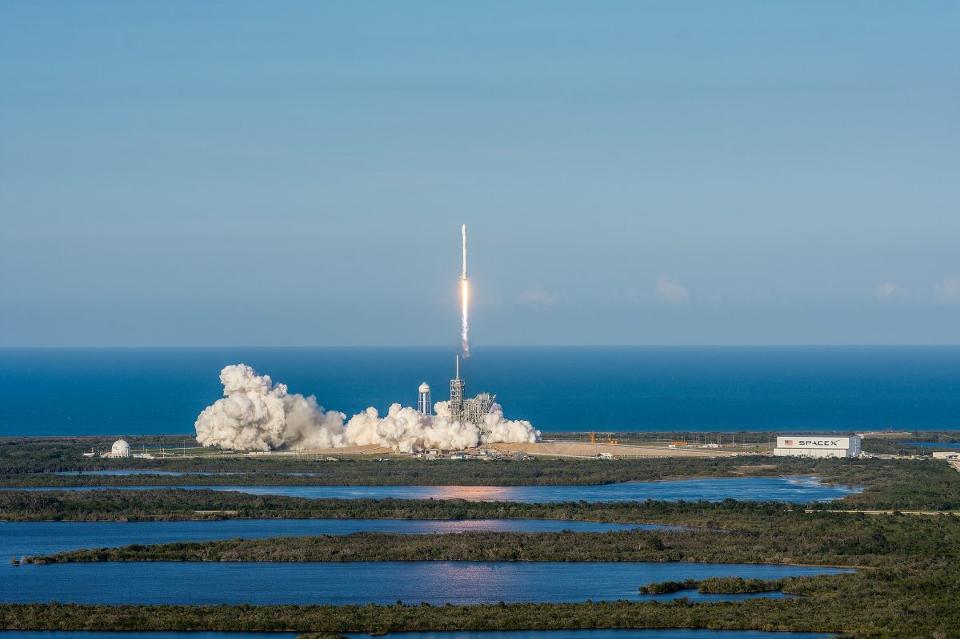
What SpaceX’s Successful Reusable Rocket Launch Means For the Space Industry.
In yet another historic first, Space Exploration Technologies Corp. has launched a reusable orbital rocket into space and then landed the vehicle back on Earth.
The milestone occurred Thursday evening when SpaceX, the California rocket-maker headed by billionaire Elon Musk, launched from NASA’s Kennedy Space Center in Florida one of its Falcon 9 rockets that had previously flown in space and landed the 224-foot-tall booster on a barge in the Atlantic Ocean.
Afterward, an elated Musk said the event marked the first re-flight of an orbital-class booster.
“We just had an incredible day today,” he said, calling it a victory for the company and for the space industry. “It means you can fly and re-fly an orbit-class booster, which is the most expensive part of the rocket. This is going to be … a huge revolution in space flight.”
Musk drew a comparison to air travel, which would cost far more if “you threw away an airplane after every flight.”
He added, “It’s been 15 years to get to this point. It’s taken us a long time [with a] lot of difficult steps along the way.” He later said, “I’m at a loss for words … proving that something could be done that many people said was impossible.”
SpaceX in January returned to flight from Vandenberg Air Force Base in California more than four months after one of its boosters exploded on a launch pad at Cape Canaveral. The fireball destroyed the not only the rocket, but also the Amos-6 commercial satellite, and significantly damaged the pad.
Last year, the Air Force awarded SpaceX, based in Hawthorne, California, its first substantial military contract in a deal valued at $83 million to launch a GPS satellite aboard a Falcon 9 rocket in May 2018. The company also bid for a subsequent deal.
While the company has existing agreements with NASA to resupply the International Space Station and develop a manned capsule to launch astronauts, it has also started competing against United Launch Alliance LLC, a joint venture between Lockheed Martin Corp. and Boeing Co., for a slice of the defense launch business.
SpaceX is working to develop reusable rockets to reduce launch costs. The idea is to recover rather than discard into the ocean the first stage and its engines — the most expensive part of a rocket.
The company prices a “reusable” Falcon 9 mission at between $42 million and $61 million each. By comparison, ULA’s Delta Heavy rocket used by the Air Force runs roughly $375 million per mission, though that price tag includes a variety of mission assurance initiatives to guarantee there won’t be a launch failure.
The latest SpaceX mission will deliver the commercial SES-10 satellite into a geostationary transfer orbit.













